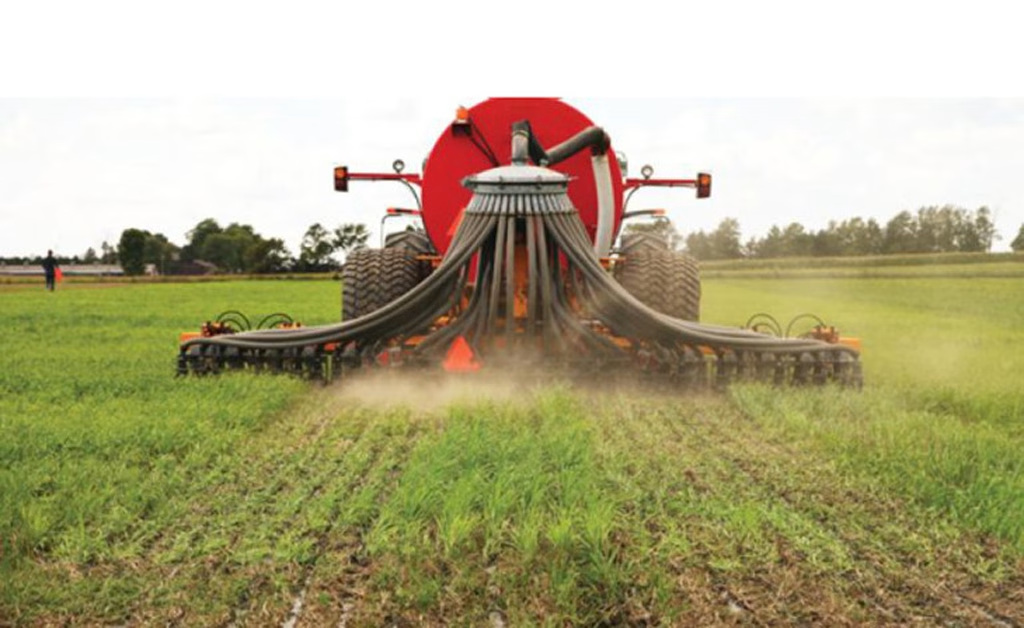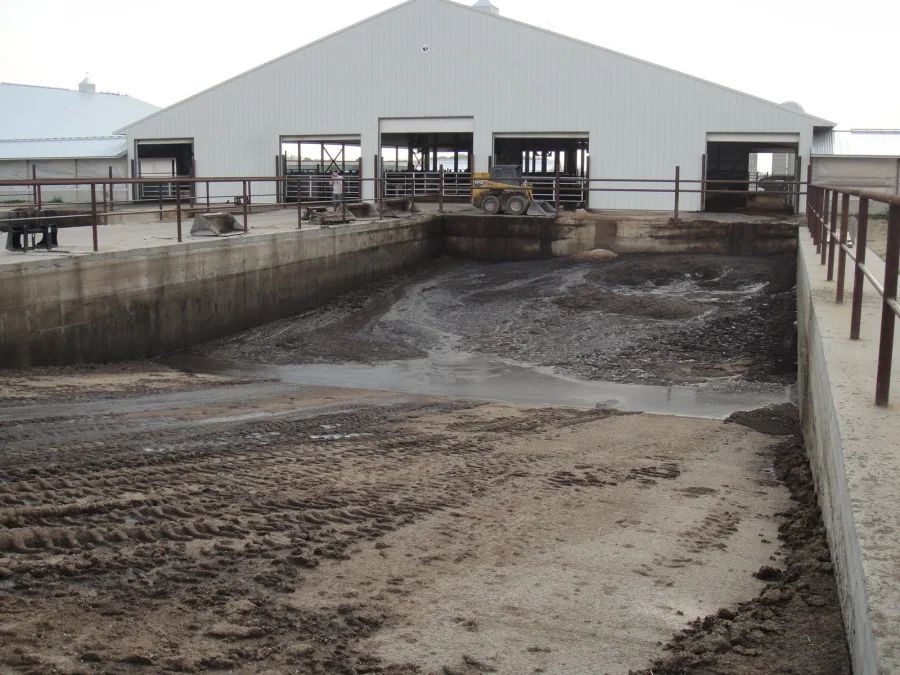Unlock the secret to skyrocketing dairy yields! Ready to boost production and profits? Discover how innovative manure techniques make all the difference.

Have you ever considered turning manure into money? Here’s how! Manure control has long been an important, albeit challenging, element of dairy production. Previously considered a dull activity, it is now being reevaluated as a potential goldmine. Adequate manure management is more than just keeping your farm clean and healthy; it is also necessary for nutrient recycling and soil health. Consider a technology that turns this waste management burden into a tremendously profitable endeavor. This ground-breaking strategy promises to improve soil fertility, minimize environmental impact, and raise agricultural profitability. With these encouraging results on the horizon, it’s time to investigate this unique manure management method and how it may change the game for dairy producers.
Rethinking Manure Management: A New Dawn for Dairy Farmers
Traditionally, manure was applied directly to the field, composted, and stored in lagoons or pits. These tried-and-true strategies generally rely on manure as a fertilizer to increase soil nitrogen content and boost crop development. However, although these approaches are helpful in many ways, they have limitations.
One fundamental difficulty is variability in nutrition delivery. When manure is applied directly to fields, it might be challenging to maintain a uniform distribution of critical nutrients, resulting in regions of overfertilization or nutrient deficit. This impacts agricultural production while contributing to environmental challenges, including fertilizer runoff and water contamination.
Additionally, storage pits and lagoons have their own set of limits. While these technologies help handle vast amounts of manure, they may emit greenhouse gases, mainly methane, exacerbating climate change. Furthermore, lagoons are prone to leakage and overflow, which may contaminate nearby water supplies.
Although composting is a more regulated manure management technique, it requires substantial effort and time commitment. To ensure that the manure decomposes effectively and safely, temperature, moisture levels, and aeration must be carefully monitored throughout the process. Even so, the resultant compost must be adequately maintained to maximize its advantages while minimizing its negatives.
Although functional, conventional manure management technologies hinder operational efficiency, environmental sustainability, and economic viability. The key to overcoming these challenges is to adopt creative tactics that refine and improve manure management procedures, eventually providing dairy producers with more sustainable and practical solutions.
Meet the Game-Changer in Manure Management: The Innovative Manure Injection Technique
The new manure injection technology is transforming manure management. This cutting-edge technology transforms manure, providing several advantages over regular surface spreading. Instead of applying manure on top of the soil, this method injects it straight into the ground. This brings nutrients closer to plant roots, improving absorption and minimizing nutrient loss via runoff or volatilization.
But how does it work? Manure is injected under the soil surface using specialist equipment, dramatically reducing odor and greenhouse gas emissions. This equipment may range from basic injector toolbars mounted on slurry wagons to sophisticated systems outfitted with GPS and real-time nutrient monitoring.
Scientific research has been instrumental in the development of this technology. Studies have shown that injecting manure can enhance soil health by boosting organic matter and microbial activity. Furthermore, as shown in Figure 1, research demonstrates how factors such as tillage intensity, sample depth, climatic conditions, and treatment duration influence soil organic carbon stores when manure is treated this way. These results underscore the potential of manure injection to promote long-term soil fertility and sustainability, providing dairy producers with a scientifically-backed solution they can trust.
Traditional manure spreading generally leads to uneven distribution and unpredictable losses, reducing effectiveness. In contrast, manure injection provides a more uniform application, increasing nutrient availability and crop yields. Furthermore, this technology decreases environmental effects since it reduces nitrogen runoff into water bodies, allowing dairy producers to satisfy severe regulatory standards and contribute to improved climate stewardship.
Adopting this unique manure injection technology may result in healthier soils, more output, and a more sustainable agricultural business, making it a preferable option to standard approaches. As dairy nutrient management specialists, we can embrace this progress to ensure your farm’s resilience and productivity in an ever-changing agricultural context.
This Manure Injection Technique Can Skyrocket Your Farm’s Productivity—Here’s How!
The benefits of manure injection techniques considerably outweigh those of traditional approaches, with significant improvements in soil health, nutrient retention, and crop yields. This approach dramatically lowers nutrient runoff by immediately integrating manure into the soil, a substantial problem with surface application. According to studies, manure injection reduces nitrogen losses by up to 50%, ensuring that more of this essential nutrient is accessible to crops.
Another significant effect is improved soil health. Manure injection encourages the growth of soil organic carbon reserves, which are critical in improving soil structure, water retention, and microbial activity. Figure 1 from a recent study shows a significant association between manure injection and soil organic carbon levels, particularly under low tillage circumstances.
Furthermore, this approach boosts agricultural yields by giving plants a more regular and easily accessible source of nutrients. According to continuing scientific studies, farms using manure injection enjoy an average boost in crop yields of 10-15% compared to typical surface spreading techniques. Increased production may help family farms balance profitability and sustainability.
Farmers that use manure injection improve the health of their soils and crop performance while contributing positively to the larger discourse about sustainable agriculture and climate change mitigation. This strategy exemplifies the progressive mindset required for contemporary dairy production. It emphasizes the scientific research-backed assistance accessible to those ready to experiment.
Manure Injection: A Win-Win Solution for Environmentally Conscious Dairy Farmers
As dairy producers, we are often worried about the environmental consequences of our waste management procedures. Fortunately, the manure injection method provides excellent news. This approach dramatically lowers nutrient runoff by integrating manure directly into the soil, which is a significant cause of water contamination. This not only helps to safeguard our local water bodies, but it also guarantees that our soil keeps more nutrients, resulting in more excellent agricultural development.
Furthermore, the technology significantly reduces greenhouse gas emissions. Traditional manure spreading may emit significant amounts of methane and nitrous oxide, potent greenhouse gases. However, manure injection significantly decreases these emissions, substantially contributing to our continued efforts to combat climate change. The beneficial ripple effects extend beyond the farm, increasing the overall health of local ecosystems and water quality, making our activities more sustainable and ecologically friendly. This is a significant step towards sustainable agriculture that dairy producers can be proud of.
The Financial Upside of Manure Injection: Why the Initial Investment is Worth It!
When evaluating the economic sustainability of manure injection, it’s crucial to consider both the initial investment and the long-term financial rewards. While implementing an innovative manure injection system may initially be more expensive than traditional surface spreading or broadcast application techniques, the potential return on investment is significant. The acquisition of specialist equipment and the possibility of additional training contribute to the higher initial cost, but the financial benefits in the long run make it a worthwhile investment.
However, long-term savings often outweigh the early expenditures. Manure injection considerably minimizes nitrogen loss from runoff and volatilization, allowing manure to be used more efficiently as a fertilizer. This enhanced use enables dairy producers to depend less on expensive commercial fertilizers, resulting in significant long-term savings. Furthermore, putting manure directly into the soil improves crop yields. It promotes better soil microbiomes, increasing the farm’s productivity and profitability.
Furthermore, several financial incentives and subsidies are available to help cover the early expenses of using manure injection technology. The USDA and numerous state agricultural departments provide programs to help farms make sustainable transitions. These include cost-sharing possibilities, low-interest loans, and direct incentives to promote ecologically friendly agricultural techniques.
Dairy farmers that properly use these financial incentives not only alleviate the burden of the initial expenditure but also position their businesses to reap the long-term economic and environmental benefits of manure injection. This makes a persuasive argument for adopting this sophisticated manure management technology, both ecologically and financially.
Ready to Dive Into Manure Injection? Here’s Your Step-by-Step Guide to Get Started
Suppose you’re fascinated by the potential of manure injection and want to implement it in your company. In that case, you must take a few practical measures to guarantee a seamless transition. First and foremost, it is essential to invest in the appropriate equipment. You will require a manure spreader with injection tools. These injectors put manure directly into the soil, reducing odor and increasing nutrient retention. Many manufacturers provide retrofit kits that may convert your current equipment into an injector system, which may be more cost-effective.
When it comes to best practices, time is crucial. Injecting manure at the correct time—usually shortly before or during the growth season—can improve plant nutrient absorption and crop production. Furthermore, avoid injecting manure when the soil is excessively wet or dry since these circumstances might induce compaction or impede adequate injection depth and distribution.
Be prepared for problems, including soil kinds and weather conditions. Heavier soils might be more challenging to inject manure into and require extensive equipment. Similarly, unforeseen weather changes might upset well-planned injection plans, necessitating adaptability.
Organizations such as the USDA Natural Information Conservation Service (NRCS) provide information and, in some instances, financial aid for implementing conservation measures such as manure injection. Similarly, local agricultural extension agencies provide vital individualized assistance and region-specific suggestions.
The Bottom Line
Manure injection has the potential to transform dairy production by optimizing nutrient delivery, improving soil health, and drastically lowering environmental impact. This cutting-edge approach increases agricultural yields and provides a sustainable solution that helps both farmers and the environment. Dairy producers that invest in this technology might anticipate long-term financial and environmental benefits. As the study continuously indicates favorable results, now is an excellent moment for dairy producers to explore including manure injection into their nutrient management techniques. Don’t pass up the chance to boost your farm’s production and sustainability—start researching manure injection now and see how it transforms your crops and the environment!
Key Takeaways:
- Manure injection massively enhances nutrient absorption and reduces nitrogen loss.
- This technique significantly lowers emissions of harmful greenhouse gases, making your farm more eco-friendly.
- Expect an uptick in crop yields due to better nutrient utilization.
- Though the initial investment might seem steep, the long-term financial benefits are substantial through improved soil health and crop productivity.
- Manure injection can help in adhering to stringent environmental regulations.
- Adopting this method showcases your commitment to sustainable farming practices.
Summary:
Manure injection technology revolutionizes dairy production by improving soil fertility, minimizing environmental impact, and increasing agricultural profitability. Traditional methods like composting and storage have limitations such as variability in nutrition delivery, overfertilization, and greenhouse gas emissions. Manure injection uses specialist equipment to inject manure under the soil surface, reducing odor and greenhouse gas emissions. This method boosts soil health by boosting organic matter and microbial activity, helping dairy producers meet regulatory standards and contribute to climate stewardship. Manure injection techniques result in healthier soils, increased output, and a more sustainable agricultural business. It reduces nutrient runoff by up to 50%, ensuring more essential nutrients are accessible to crops and encouraging soil organic carbon reserve growth. This cutting-edge approach increases agricultural yields and provides a sustainable solution for farmers and the environment.












